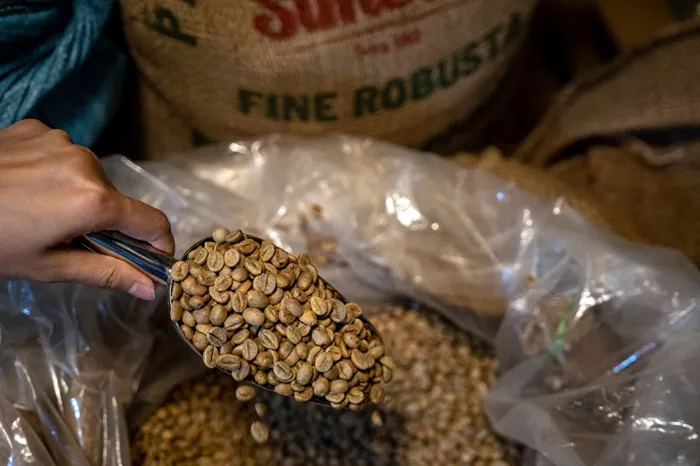The world’s population continues to grow at a rapid pace, with an annual increase of about 1%, creating an ever-expanding demand for food production. However, the challenge of meeting this demand comes with significant environmental and logistical concerns, as increasing food production may also exacerbate ecological footprints while potentially compromising food quality. A Singapore-based startup has developed a groundbreaking technology to address these issues, aiming to enhance the efficiency and sustainability of the global food supply chain.
ProfilePrint, a tech company that has developed patented digital fingerprint technology, offers a solution that allows businesses to quickly assess the identity and quality of ingredients, ultimately saving both time and money. By leveraging this technology, agribusinesses can significantly improve the accuracy of their operations, avoid costly logistical mistakes, and reduce waste.
A Smarter Way to Assess Ingredients
The global agricultural trade, from farming to food manufacturing, typically involves multiple stages of interaction between producers, traders, and buyers. These stages often include rounds of physical sampling to determine the quality of ingredients, which can be time-consuming, expensive, and environmentally taxing. Alan Lai, the CEO and founder of ProfilePrint, spoke to CNBC’s “CNBC Tech: The Edge” about the inefficiencies in the current system, explaining that these rounds of physical sample exchanges are replicated throughout the entire supply chain, contributing to high logistics costs, inefficiencies, and an increased carbon footprint.
“We’ve digitized food ingredients so that buyers and sellers no longer need to physically ship samples,” Lai said. “This allows us to significantly reduce logistics costs, overheads, and, most importantly, carbon footprints.”
The technology behind ProfilePrint’s innovation is rooted in artificial intelligence (AI) and machine learning, combined with a specialized wave detector. The system analyzes food samples at a molecular level, using AI to recognize patterns in food quality in a matter of seconds. Through this process, ProfilePrint creates a “digital fingerprint” of food ingredients, which contains detailed information about the sample’s composition.
AI-Driven Precision for Food Quality
At the core of ProfilePrint’s technology is an AI-powered platform that allows users to create custom models that assess whether a raw ingredient fits their desired specifications. This feature enables traders and manufacturers to build personalized AI models that evaluate products based on a wide range of characteristics, including appearance, flavor, and overall quality.
For example, in the coffee industry, the platform can detect minute defects in beans that might otherwise go unnoticed by the human eye. Lai demonstrated this by explaining how a few defective beans can spoil an entire batch. “Maybe there’s one or two beans that have accidentally fermented wrongly or have an insect inside them,” he said. “If you cannot pick out that one or two, then you effectively will not be able to sell this lot meaningfully.”
ProfilePrint’s AI technology ensures that even small issues in food ingredients can be detected and flagged. Once the sample is analyzed, the digital fingerprint is generated and sent to the platform’s AI, which uses industry knowledge to provide a recommendation, such as a price estimate or quality assessment.
Moreover, the platform offers clients multiple options for balancing price with quality, making it an invaluable tool for buyers and sellers alike. This kind of technology represents a major breakthrough, particularly in industries like coffee, where high-quality ingredients are essential but difficult to assess with traditional methods.
Revolutionizing the Coffee Industry
One of ProfilePrint’s key successes has been in the coffee sector. The company’s patented technology has helped tackle one of the coffee industry’s most pressing issues: identifying defective products that are invisible to the naked eye. By using ProfilePrint’s platform, traders and manufacturers can ensure they are buying and selling only the highest quality beans, while also improving supply chain efficiency and cutting down on human error.
The technology’s potential, however, extends far beyond the coffee industry. ProfilePrint’s platform is versatile enough to be applied across a wide range of industries, from tea and cocoa to spices, grains, and oils. As more agribusinesses adopt the technology, it is expected to have a transformative impact on the global food trade, making the process faster, more efficient, and more sustainable.
Competing with Other AI Startups in the Food Industry
ProfilePrint is not alone in the emerging field of AI-driven food quality assessment. Several other startups are exploring similar technologies to help businesses improve food production and product development. Aromyx, a U.S.-based startup, combines biotechnology, data science, and artificial intelligence to help businesses match flavors and scents for product development. Another Californian startup, Brightseed, uses its AI platform, Forager, to analyze compounds in plants and microbes to understand their health benefits and develop health solutions for food, beverages, and supplements.
Despite this growing competition, ProfilePrint stands out for its ability to streamline the food supply chain using digital fingerprint technology, which provides immediate results at a fraction of the cost of traditional methods. The company’s technology is also uniquely adaptable, capable of being customized for different industries and client preferences.
Global Reach and Growing Demand
Founded in 2017, ProfilePrint’s origins are tied to Alan Lai’s travels across Africa and China, where he observed first-hand the challenges faced by farmers in Uganda. Many of these farmers lacked the knowledge or resources to accurately assess the quality of their produce, resulting in products being sold at a uniform price regardless of their true value. Lai saw an opportunity to democratize expertise in food quality assessment, allowing producers at every level of the supply chain to make better-informed decisions.
Today, ProfilePrint is based in Singapore, where 90% of its revenue is generated. However, the company’s reach extends far beyond the city-state, with its services deployed in over 60 locations across six continents. The platform is “digitally available,” meaning clients can access it from anywhere in the world, further expanding the company’s global footprint.
Related Topics:
Chobani Taps Former Coca-Cola Executive Jai Kibe as New CMO
Kalbe and Mikael Jasin Brew a Healthier Cup for Coffee Lovers
Taiwan’s Chang Wei-shin Breaks Through as World Siphonist Champion


